editors introduction
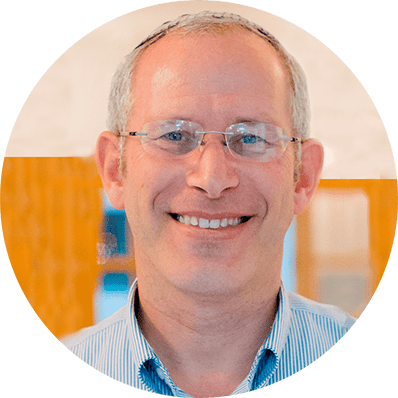
From the Editor: Summer 2021
Throughout the COVID crisis, the discomfort of the daily uncertainty was often echoed in the familiar refrain of, “I just can’t wait to go back.” Zoom fatigue, social distancing, and the need to always be on watch, fed on each other in a spiraling yearning for going back to the familiar, to normal. Indeed, many schools did not hesitate to revert back to their “regularly scheduled programs” as soon as the guidelines permitted them, and were I to ask their leadership to reflect on what they learned, their answer would be something like, “We survived.”
Educational Change

(COVID) Inspired Scheduling
Prior to the pandemic, the teachers and administrators at SAR High School frequently discussed student stress. We had, at times, sought to address it through various initiatives, some modest and some bold. As the pandemic raged last spring and we began to imagine the 2020-21 school year, we decided, first, to create more “down time” for students to alleviate the increased stress of this new reality.

COVID as a Catalyst
As the pandemic broke, Bornblum Jewish Community School was nearing completion of a three-year strategic plan which included the creation of two significant positions: Director of Curriculum and Instruction and Director of Student Services. The school leadership and board committed to the goal of moving forward during the pandemic, and the implantation of those two roles placed the focus squarely on the school’s academic achievement while attending to the individual needs and social and emotional well-being of the students.
Administration

Thinking Adaptively: Reimagining Jewish Education in a Post-COVID Word
Professors Ronald Heifetz and Marty Linsky argue that the most common downfall of leadership is when leaders treat adaptive challenges as technical ones. That’s when managers notice a cultural problem in their organizations and try to solve them by changing the length of weekly meetings. It’s when schools treat narcotics issues with standalone anti-drug presentations. Ultimately, it’s when we choose to apply technical fixes instead of facing the reality that a paradigm shift is likely necessary.
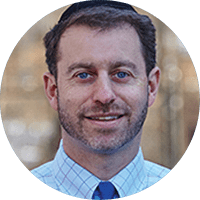
Change is Good, Unless it Isn’t
Imagine an elevator pitch from a company looking to differentiate itself five years from now:
“Hire us for a competitive edge and benefit from our revolutionary approach. Our organization believes that a face-to-face, in-person relationship will give you a qualitative advantage over all our competitors. We offer an in-person, personal touch. Not just a face on a screen.”

Does Voluntary Zoom-ing Play a Role in the Schools of the Future?
Like any new invention or technology used in school, Zoom has enormous benefits, but also has unanticipated downsides. It enables students to stay current in their courses from anywhere in the globe, avoiding disruptions and missed classes. At the same time, both teacher instruction and student learning face challenges when done over Zoom, where students are often preoccupied by other apps on their phones and computers and distracted by whatever else may be going on in the location they are Zooming from.

No Water, No Life
Watching our sixth graders perform on Lag Ba’Omer was a particularly poignant, multilayered moment. This was not your typical grade school performance. This year it was a milestone, our largest gathering of students at an assembly. It was a sight. The masked performers—yes, a further hinderance to audibility—looked out at their masked, socially distanced audience, sitting a luxurious three feet apart.

A Post-COVID Dream
The COVID pandemic brought the potential of irreparable divisiveness to our school communities. We were forced to grapple with core issues such as sakanat nefashot, danger to life, hillul Hashem (disgracing God’s name), and bitul Torah, squandering time allocated for Torah learning. These values, foundational to our religious personas and the ethos of our school, often seemed to conflict. There was a heightened level of intensity and passion marking any decision that touched on these topics.
Social Emotional

Building Students’ Self-Awareness Skills: A Systems Thinking Approach to Trauma-Sensitive Education
Embracing the notion that everyone has experienced trauma during the pandemic leads to the acceptance that all schools require a trauma-informed education approach now and for the years to come. Jewish day schools must be equipped with the tools and resources to support the vast and pervasive emotional distress that has resulted from the range of trauma that our children and adolescents have experienced. Students need to be given a voice to express themselves, and to know that they will have someone who will deeply listen to and support them.

The Urgency of Teaching for Uncertainty: Opportunities and Challenges for Jewish Educators
One of the most certain features of the COVID-19 period is the unprecedented level of uncertainty in our lives. Uncertainty is all around us, as the COVID-19 pandemic has heightened uncertainty over our physical and mental health, the economy, relationships, education, employment, and finances. As human beings, we crave a sense of security. We want to feel safe and maintain a sense of control over our lives. Uncertainty leaves us feeling diminished, stressed, anxious, and powerless.

COVID-inspired Mishpachot
In June of 2020, our high school Judaic team met to discuss programming for the coming year. We had just experienced a few months of Zoom-only classes and programming with mixed results. We needed to plan programming that would be COVID-safe in person yet also work on Zoom since we didn’t know what the year would look like.

The School as Part of the Village
As educators, we work hard to refine a sixth sense pertaining to our students’ well-being: we hear their words, listen to their manner of speech, and track their body language. When a student walks into class and has their hoodie up, or puts their head on their desk, a sensitive teacher sees distress and reaches out. When remote learning began, reading our students from a distance became more complex.
Teaching and Learning
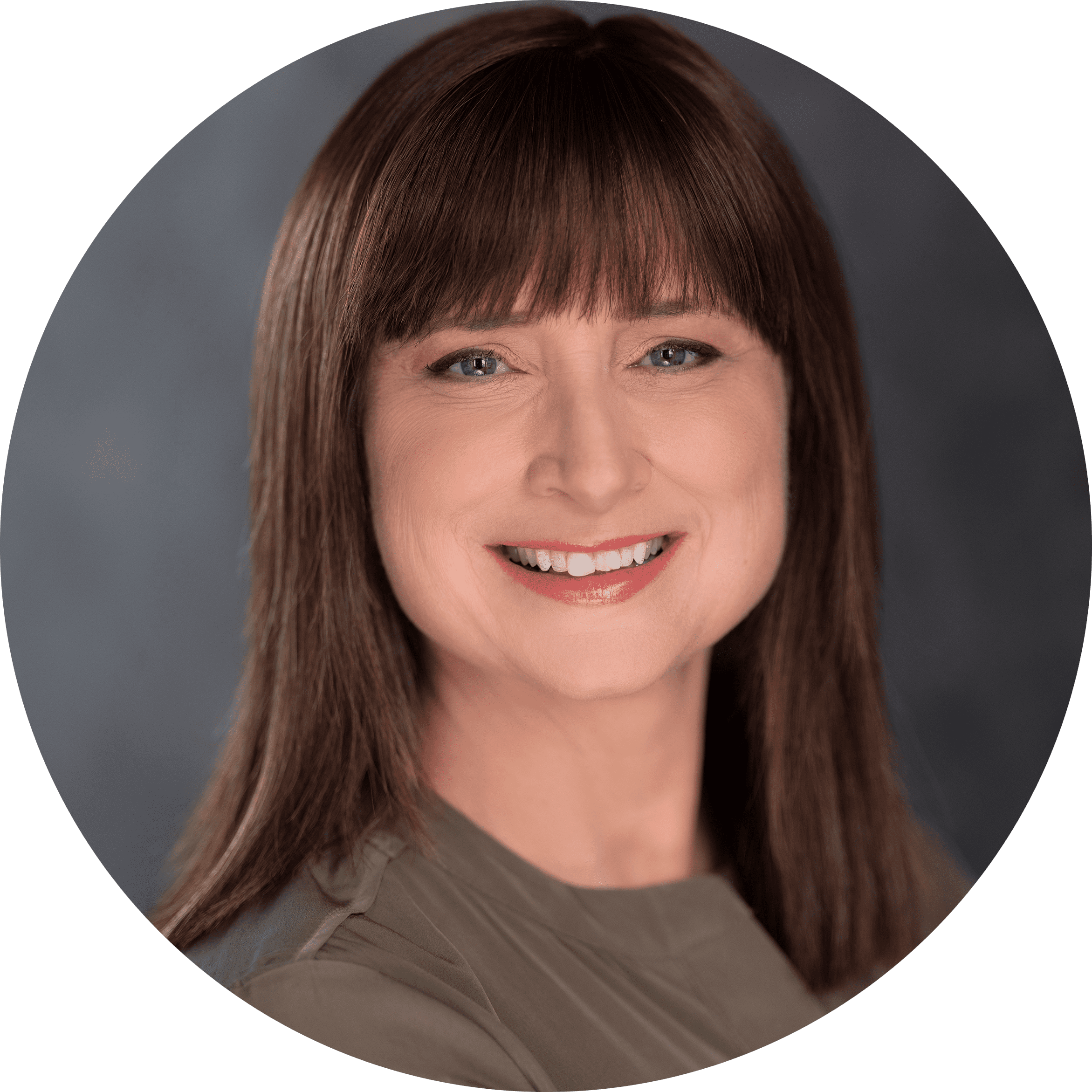
Leave Meeting: Creating Closure in Adult Online Classes
It’s usually hard to say goodbye to students at the end of a course or a semester because we’ve created a temporary community of meaning. But online education during COVID has shifted many classroom norms dramatically. One such norm is class closures. Goodbye is now emblazoned with the red “Leave Meeting” button. Worse still is the “End Meeting for All” tab that prevents any adult learners from lingering and reduces a class to a screen shot of people’s gaping mouths frozen, sometimes in mid-sentence.

Enabling Student Agency
Passover 2021 was approaching, as was another round of virtual learning for Jewish day schools. Even North American day schools meeting in person were scheduling online classes for some pre- and post-Passover days as a safety measure, allowing teachers and families to be with extended family for the first time in a year. Charles E. Smith Jewish Day School in Rockville, MD, aimed to maximize the virtual learning time and created an “innovation minimester” for their middle school.
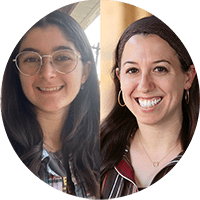
Torah Texts and the “Texts” of Our Lives
In the Spring of 2020, as the world reeled from the seismic shifts precipitated by the COVID-19 pandemic, Professor Ziva Hassenfeld initiated a teacher research project with her Brandeis University lab, SCRoLL, to study the pedagogy of early elementary education remote Tanakh instruction. Our research team set out to capture the unique pandemic era culture of textual interpretation that developed in our combined preK-1st grade classroom.

“What am I Missing?” Social Information Processing in Remote Learning
Nobel Prize winner Kazuo Ishiguro’s new novel Klara and the Sun describes a world where artificial friends are acquired as companions for children. Programmed to learn from interactions with people and the environment, Klara, the artificial friend who narrates the novel, has trouble picking up social cues from her companion’s mom.
Professional Development
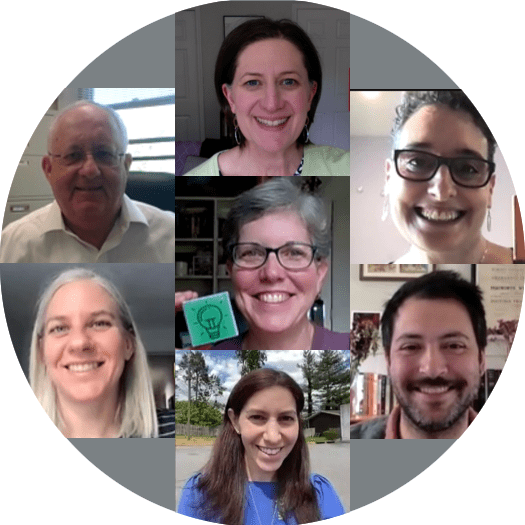
Professional Learning in Digital Spaces
The Mandel Teacher Educator Institute (MTEI) engages its participants in improving the quality of teaching and learning in Jewish spaces through an intensive 2-year cohort-based professional learning program and ongoing graduate learning. At the end of 2019, a small group of graduates and leadership began planning our biennial 2020 Graduate Conference, an opportunity to share successes and collaborate around challenges of leading professional development for Jewish educators.

Caring for the Caregivers
The transition from in-person to online learning necessitated by COVID-19 had many implications, including detrimental effects on student mental health. Precisely at an age when social interaction is crucial for development, lockdowns separated students from their peers. This separation, in addition to academic concerns, generated stress and anxiety in children. During this challenging period of rapid change, teachers were expected to create stability and certainty both in their capacities as teachers in the virtual classroom and as caregivers for the students.




